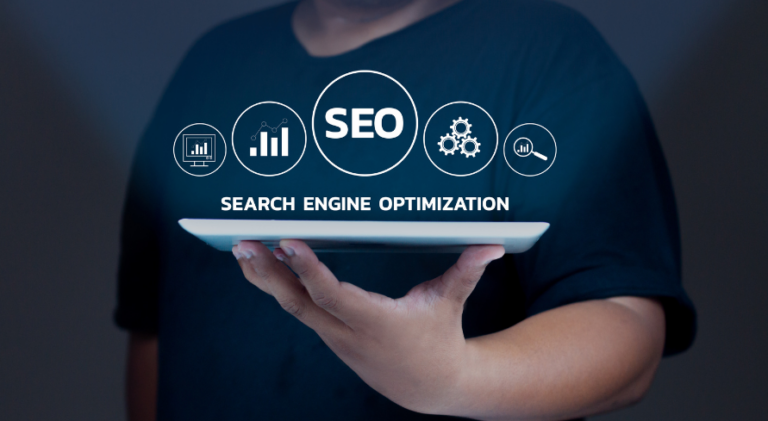
7 SEO Strategies for Ecommerce Websites
Needless to say, our shopping habits have changed hugely since the advent of online shopping, especially since the pandemic where consumer habits are more focussed on online shopping.
Indeed, according to Insider Intelligence, the popularity of online shopping is only set to increase with a forecast of 10.5% growth this year. Nonetheless, it cannot be denied that gaining visibility as an ecommerce website is tough with such a vast amount of competition.
This is particularly true at the moment. While 76% of online shoppers choose to do so for convenience, this doesn’t mean that consumers aren’t changing their habits because of the state of the economy. Learning about customer habits and ensuring that your ecommerce site performs as well as you could hope is essential for success.
There are many aspects to this, for example considering the impact of voice search, UGC and even AI. However, this article will focus on a more foundational aspect of website optimisation. By developing an SEO strategy for your ecommerce website, you will ensure that your website performs well on search engines so that you can reach your ideal audience who are looking for products in your niche.
SEO is a topic that is frequently commented on within digital marketing circles. It can seem overwhelming at first, with advice pouring in from every angle. Firstly, it is important to appreciate that SEO isn’t as daunting a topic as it may appear. Secondly, while there are many aspects to SEO that are pertinent across all websites, there are specific elements to an e-commerce seo strategy that you will do well to implement. This article will talk you through the basic elements of SEO before giving some specialised advice that will boost your website performance in no time.
What is SEO?
SEO, or search engine optimization, refers to the ways in which you can improve the quality of your website and in doing so, rank more highly on search engines. Therefore, it works towards improving the quantity and quality of organic, i.e unpaid traffic and converting those visitors into sales. There are various techniques that you can employ to achieve this which cover manifold aspects from a page’s appearance, content etc.
The importance of SEO for Ecommerce
SEO is a continual process and there is no set checklist to ensure that your ecommerce site performs well, it does play a paramount role in the success of e-commerce ventures by significantly enhancing online visibility, driving target traffic and in result, boosting sales. It’s crucial to check in constantly on things like the search habits of your customers as well as website errors.
By optimising product descriptions, metadata, and website structure, e-commerce platforms can climb the ranks of search engine results pages (SERPs) which makes it easier for potential customers to discover and engage with your services.
Important though it is, it only forms one part of a strong digital marketing strategy and for an ecommerce website seo strategy it works best in conjunction with other marketing elements, such as e-commerce advertising.

The best Ecommerce website SEO strategies
If you’re familiar with SEO and have read advice before, some of the pointers below may seem familiar, however seo for ecommerce has specific elements that more generic articles don’t cover.
Start with keyword research
Choosing keywords that are being used by people searching for your product or service is the most essential aspect of an seo strategy for your ecommerce website, without it is like setting sail without a map. It’s probably the process you’re most familiar with.
There are few different aspects to this and there are a few keyword research tools out there including, Semrush, Ahrefs and, Microsoft or Google’s keyword planner tools within their advertising platforms. After researching what keywords your audience are using, include these in your product pages, meta titles, descriptions and URL. Optimising your product pages both directly lead to higher ranking for certain keywords as well as indirectly helping search engines to display your website higher up on the page.
Keyword research is not a one off process. It is imperative that you are actively updating these keywords depending on consumer habits.
Similarly, below we will discuss optimising your product descriptions.
Optimize product descriptions
Most articles typically cover SEO techniques in a general sense, let’s explore in more detail specifics for optimising your product descriptions.
Each description gives you the opportunity to be strategic and incorporate relevant keywords and phrases you gathered from your keyword research that your potential customers are likely to use when searching for products online. E-commerce businesses can improve their ranking on SERPs by integrating keywords into their product descriptions. Not only is this an important part of the strategy but generally, crafting engaging and unique product descriptions can persuade your consumers, leading to potential higher conversion rates.
Ensuring your product descriptions are concise and easily scannable also encourages search engines to crawl the index content more effectively.
Enhance page speed and remove 404 issues
It’s important to note that whilst being strategic with your seo strategy, user experience should be the core of your thinking, a good user experience means having a fast-loading page speed.
It has been shown by KISSmetrics that if a page takes longer than three seconds to load then 47% of people would leave the page. Likewise, 80% of people will leave a website if it takes longer than ten seconds. Naturally this means losing valuable customers but it can also impact your page from an SEO perspective by increasing your bounce and conversion rates.
Worry not! There are a few easy things to do to improve this. The most common problem in this area is when a website has too many images but the fix is simple: use image compression software to optimise your images for your webpage. The other culprit is caching – when commonly accessed data is stored for faster access. By installing a plug-in, you can ensure that the data you are using is stored in memory instead. These two simple tips can go a long way to improve your SEO ranking and to ensure that your visitors have a good experience when they search on your ecommerce site.
Add schema markup and optimise the sitemap
Incorporating schema markup and optimising the site map can be a vital step for enhancing your online visibility and improving your search engine rankings.
Schema markup can reference the structured data which is code you add to your webpages to help search engines better understand your content. This helps them to display your content in a rich format. Like this example below where Google displays image, star rating, cooking time and ingredients directly in the search. These make your product or service more appealing to potential customers.

Additionally, optimising the sitemap ensures that when your site is being crawled the search engines can efficiently navigate and index the entirety of your site, leading to higher rankings in the search results.
Build high-quality backlinks
Backlinks are links that connect back to another website. Although you may think that such links aren’t pertinent for seo for ecommerce websites, building up backlinks are a great way to rank higher on all search engines and build credibility and authority for your website. There are a few ways in which you can start developing this aspect of your seo strategy but the best way to do this is by guest blogging. Writing content for other reputable sites signals to search engines that the linked-to content is valuable and deserving of higher visibility. However, it’s important that the focus here is quality not quantity. A high-quality backlink originates from authoritative and relevant sources within the same industry or niche and carries more weight for search engines.
A high-quality backlink acts as a pathway for referral traffic, directing users from other websites, increasing your potential customer base.
Track your competitors with rank tracking tool
An SEO rank tracking tool is also essential to track competitors, gaining valuable insights into their strategies.
Tracking your competitors’ search engine rankings, keyword performance, and backlink profiles means you can benchmark your own performance against your competitors. Tracking competitors provides you with a holistic view of the competitive landscape, enabling you to anticipate market shifts, capitalise on upcoming trends and maintain a strategic advantage.
Monitor performance with SEO tools
If you’re serious about incorporating an SEO strategy onto your e-commerce site, an SEO audit tool is vital to any search engine marketing tool stack. A tool can support you in easily identifying the issues affecting your site performance in search results.
You can leverage these tools to prioritise the most urgent issues affecting your site performance in search results.
You can optimise site performance with our Diginius Insight tool which allows you to:
- Explore errors, warnings, notices, broken pages and links.
- Find duplicate Meta tags, duplicated content, duplicated descriptions, security and governance.
- Run scheduled SEO Audits on your website.
Reasons why you need SEO Ecommerce strategy
A plan and strategy which understands the nuances of SEO for an ecommerce website and continually seeks to implement and review these ideas will lead to your ranking on search engines to continually improve. There are both technical and creative aspects to SEO strategies and uniting them will give you the best chance to enhance your website’s functionality and performance over a long period of time.
As repeatedly mentioned, these tips are not for a one-off project. For your SEO strategy to be most effective, continual review of these aspects is essential. Yet, developing an SEO strategy is only the beginning of your digital marketing strategy for your ecommerce site. There is a whole wealth of expertise out there to help you reach new audiences and convert site visitors to sales. Diginius offers a range of ways to help you manage your ecommerce digital marketing, including some ecommerce seo services.
If you’re a marketing agency, head to our website to find out more about our Diginius Agency Partner Program. Meanwhile, if you are a business managing your paid advertising in-house and you would like our support, discover how our Diginius Insight Platform boosts your ROI.



